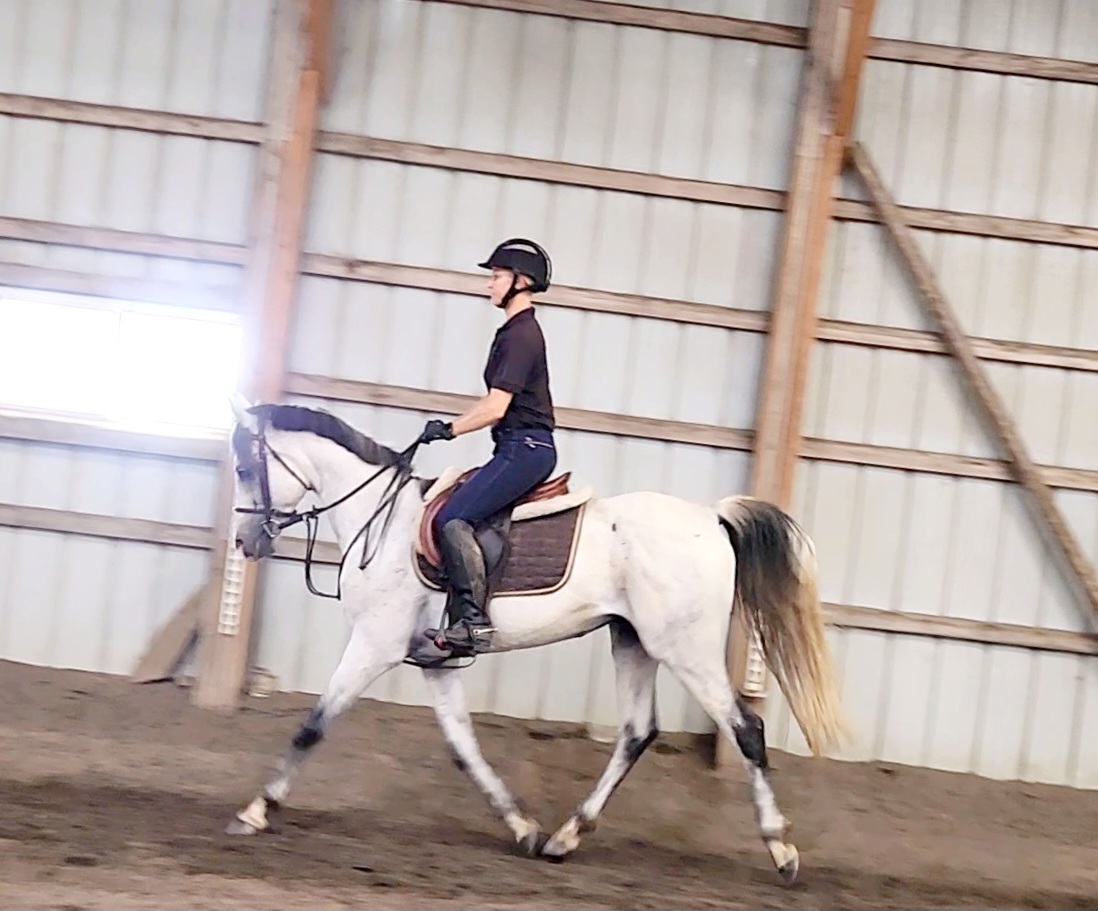Crowdfunding is huge these days. It seems as though everyone has the next great idea that could make millions, if only they had the funding. The power of the crowd is mighty, and it seems that Grand Prix show jumper Richard Spooner is trying to tap in to it. I keep seeing the link pop up on my Facebook feed with one of two reactions. The first: “How awesome/smart/clever! It’s hard to afford top level horses these days!” The second is the polar opposite: “This is appalling and trashy.”
I’m not entirely opposed to crowdfunding. I’ve watched it help great ideas like Goldieblox get off the ground. (Full disclosure, my cousin Beau Lewis is married to Debbie Sterling, GoldieBlox CEO.) People with great ideas are out there; worthy causes exist, and I am happy to offer the occasional bit of green to help someone reach a dream.
However, in this instance, it doesn’t sit right with me. It seems tacky and cheap to have gone about it this particular way. A big-name rider beating the “even-10-bucks-will-help” drum comes off as utterly entitled and out of touch. Horses are a luxury. Horses are out of the reach of so many, and it seems insincere to offer a buy-in of $10.
There are those who hope something like this brings new people to the sport, as well as renews interest in owning high-level sport horses. I’m not so sure that holding out your virtual hat on the internet and hoping $500,000 drops in to your lap is the best way to draw attention in a day and age where we have articles on major news sites about how the middle class can’t even afford to go to chain restaurants anymore.
Maybe the backlash is because Spooner has already made it to the level so many of us dream about and aspire to, or that I’ve seen a better model that is already in existence — syndication. Syndication at first glance can look like Spooner’s crowdfunding in that someone is asking for money for a fancy horse, but that is where the similarities end.
In a well-run syndicate, there is a plan, a budget and decisions made about what to do with prize money or if the horse is injured. Syndicate members buy in to actual ownership activities and decision-making processes, though often deferring to and dependent on the rider’s expertise and vision. Syndicate members maintain their shares in the horse with additional funding as well. They are part owners.
Crowdfunding a horse for a big-name rider, on the other hand, is just chucking money at someone so they can buy a horse and go off and have a grand time. There is no contract and no accountability back to the people who threw in, save for whatever the fund-seeker chooses to offer. Crowdfunding of a horse is a dressed-up version of “won’t someone buy me a pony?” There are some serious brass balls involved in the Spooner scenario, especially considering this is a horse that we can safely assume he expects to go out and win buckets of money.
Personally, if I had extra cash to burn, I would rather throw my benjamins at a trainer so that my co-worker’s horse crazy, city-dwelling niece or nephew could have a riding lesson or two. My money goes much further that way in sharing in horses and supporting the community.
Were I a rich woman, I would be all over syndication. It can do amazing things. The day may come when I can no longer ride and somehow have extra money in my bank account; maybe that’s when I’ll buy in to a syndicate. Syndication works because it is an opportunity to buy in to a horse, a relationship, a community and the sport. Crowdfunding can’t accomplish that.




















